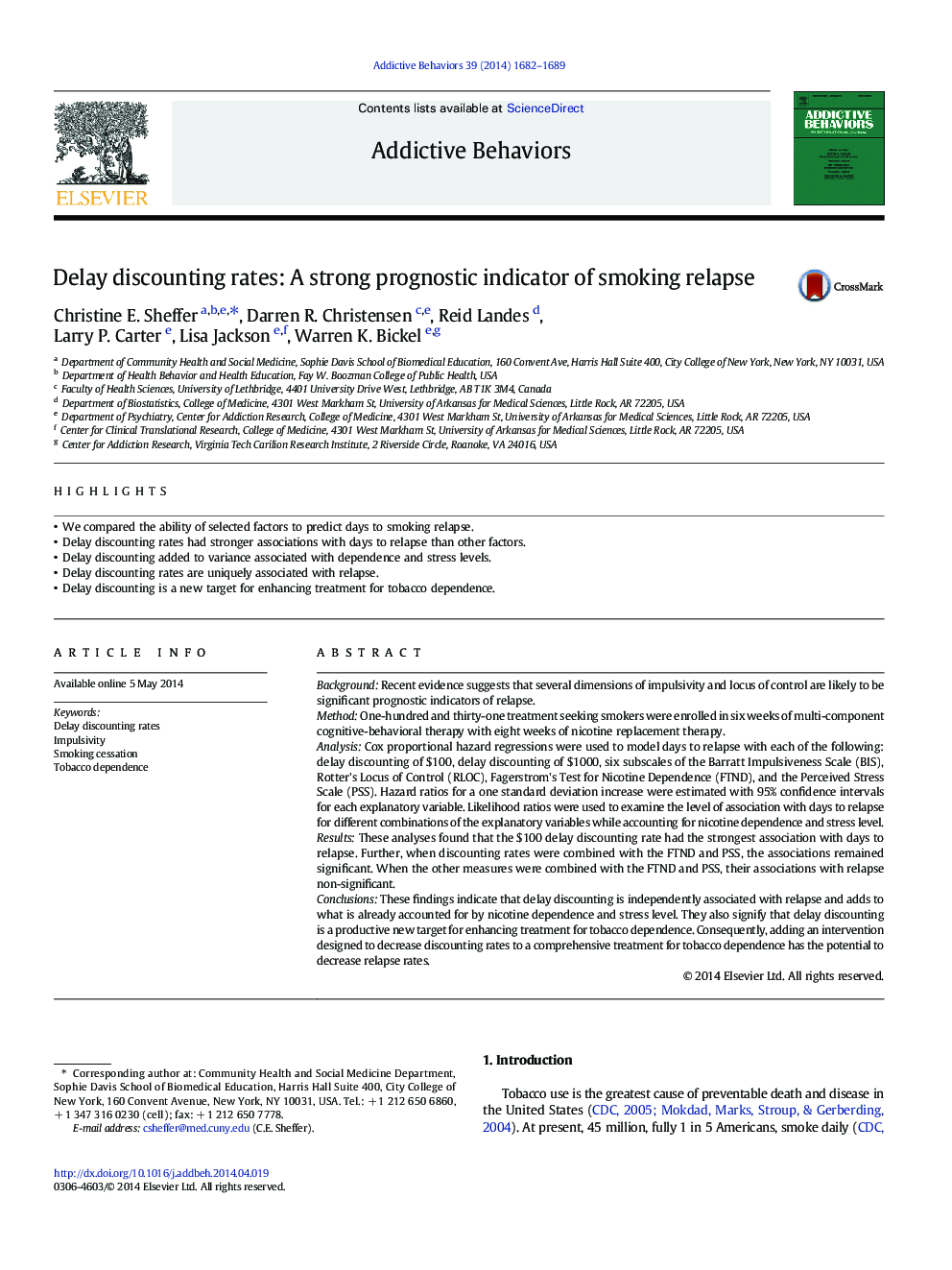| کد مقاله | کد نشریه | سال انتشار | مقاله انگلیسی | نسخه تمام متن |
|---|---|---|---|---|
| 898822 | 915343 | 2014 | 8 صفحه PDF | دانلود رایگان |
• We compared the ability of selected factors to predict days to smoking relapse.
• Delay discounting rates had stronger associations with days to relapse than other factors.
• Delay discounting added to variance associated with dependence and stress levels.
• Delay discounting rates are uniquely associated with relapse.
• Delay discounting is a new target for enhancing treatment for tobacco dependence.
BackgroundRecent evidence suggests that several dimensions of impulsivity and locus of control are likely to be significant prognostic indicators of relapse.MethodOne-hundred and thirty-one treatment seeking smokers were enrolled in six weeks of multi-component cognitive-behavioral therapy with eight weeks of nicotine replacement therapy.AnalysisCox proportional hazard regressions were used to model days to relapse with each of the following: delay discounting of $100, delay discounting of $1000, six subscales of the Barratt Impulsiveness Scale (BIS), Rotter's Locus of Control (RLOC), Fagerstrom's Test for Nicotine Dependence (FTND), and the Perceived Stress Scale (PSS). Hazard ratios for a one standard deviation increase were estimated with 95% confidence intervals for each explanatory variable. Likelihood ratios were used to examine the level of association with days to relapse for different combinations of the explanatory variables while accounting for nicotine dependence and stress level.ResultsThese analyses found that the $100 delay discounting rate had the strongest association with days to relapse. Further, when discounting rates were combined with the FTND and PSS, the associations remained significant. When the other measures were combined with the FTND and PSS, their associations with relapse non-significant.ConclusionsThese findings indicate that delay discounting is independently associated with relapse and adds to what is already accounted for by nicotine dependence and stress level. They also signify that delay discounting is a productive new target for enhancing treatment for tobacco dependence. Consequently, adding an intervention designed to decrease discounting rates to a comprehensive treatment for tobacco dependence has the potential to decrease relapse rates.
Journal: Addictive Behaviors - Volume 39, Issue 11, November 2014, Pages 1682–1689
